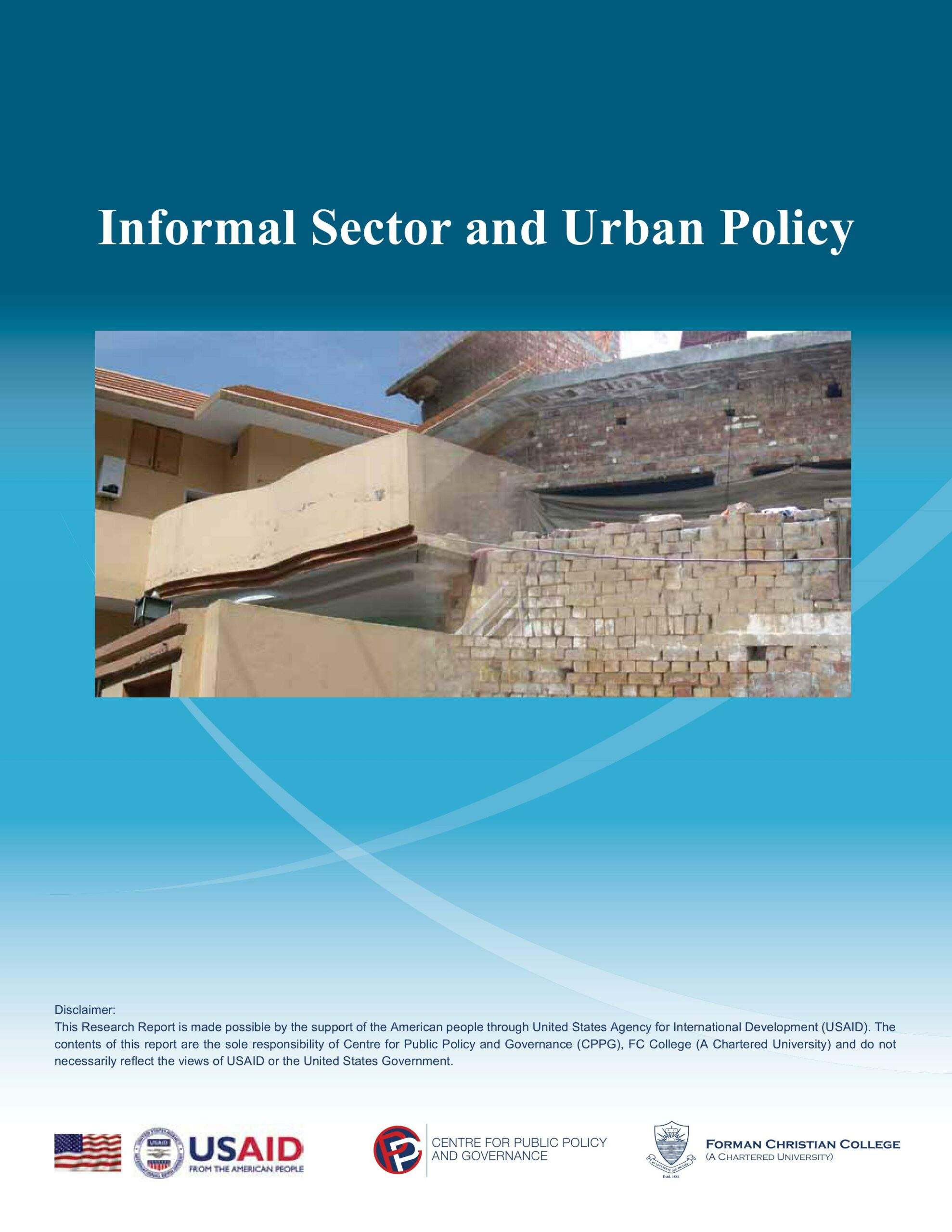
Foreword
The USAID financial and technical support helped the Centre for Public Policy (CPPG) in enhancing its Think Tank capability by establishing the Forman Christian College Public Policy Research and Resource Centre. This study on Informal Sector and Urban Policy was initiated through this program. The study raises two fundamental questions; first, who speaks for the marginalized? Second, does informal sector offer the marginalized an opportunity of a livelihood which results into a better quality of life? The forces of urbanization, modernity and globalization have center staged these two questions for the formulation of urban policy. This study draws our attention to the fact that the informal sector is growing and in the absence of government facilitation and weak social protection policies, the underprivileged and marginalized are quite adept in devising survival strategies. It explores linkages between marginality and informality and highlights how a combination of social inequality and technology (cell phones, internet, etc.) are pushing consumerism and changing the lifestyles and attitudes of the marginalized. The research also explores linkages between informal sector and urban policy by focusing on a small, down trodden locality, Khai Mohallah located adjacent to Model Town, an upscale locality of Lahore.
The study is empirical and preliminary. The primary objective of the study is to raise voice and concern about the condition of the marginalized. Simultaneously, it describes and analyzes how under conditions of adversity and in the absence of any urban policy framework, the poor and under privileged work around their survival strategies. The study is provocative, insightful and promising. It presents case studies of three families and based on their history of struggles and ambition to improve the socio-economic well-being of their families, throws light on how innovative, adaptive and vigorous these families are. It also throws light on matters related to gender and attitude towards women, disabled and the underprivileged in our society.
The common theme that emerges by examining these case studies is that despite poverty, deprivation, and lack of protection from society or government; the marginalized people do value and invest in educating their children to seek a change in their socio-economic status. The study also captures an increasing trend towards consumerism in our society: the marginalized acquire cellular phones, fridge or water motor etc. on loan/lease or through limited savings as these items are considered a necessity and not a luxury. The findings of the research further bring to focus the emergence of conflicting trends. On one hand, the extended family is acquiring new forms leading to ‘satellite dependence’ among households, where families within families seek survival and personal growth. While on the other hand, education has acquired new meaning as a ladder for upward social mobility, which is good news. But the quality of education and skills it imparts, is another study. The study further demonstrates that there are serious handicaps in our human capital. To ameliorate the conditions of the marginalized, the provincial government needs to focus on building the local government to improve governance and deliver services especially education and health urgently and effectively.
The authors Ms. Khalida Ahson, Lead Researcher and Mr. Mughees Bhalli, Research Assistant, have shown zeal and rigor in conducting this study. Besides our internal review team, I am indebted to two anonymous reviewers for their valuable comments and feedback, which has helped the authors improve the quality and content of this study. We do hope that besides scholars, policy analysts and civil society activists, the Punjab Government would find some of the recommendations of the study helpful in devising its urban and social protection policies.
Citations

